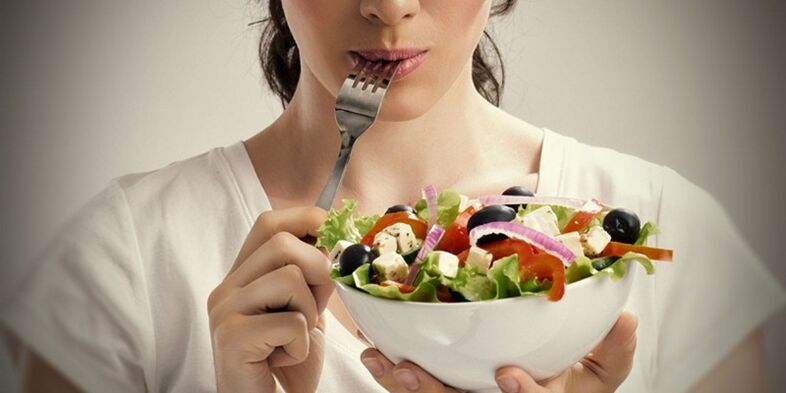
What not to do
- Uncontrolled portion sizes: Even the healthiest foods can become enemy number one if not consumed in large quantities as prescribed.
- Continuous stress leads to excess weight. To lose weight, try to avoid stressful situations and regulate your nerves.
- Water restrictions. Drinking large amounts of liquids is not recommended, but water is still a staple in weight loss. It helps the body function properly and plays an important role in the metabolic process.
- No calorie counting. Healthy eating involves carefully counting the calories you consume each day; excess calories will stay in your hips and belly.
- Ignore breakfast. Breakfast sets the stage for the next day, helping the body work tirelessly until a second breakfast or lunch. Instead of looking longingly at the supermarket bakery, you need to eat a portion of complex carbohydrates, fiber and protein in the morning to store energy.
- Lack of vegetables or low vegetable consumption. Raw or stewed vegetables are rich in vitamins and may aid in weight loss. With a wide variety of vegetables, you'll find the variety and type to suit your taste.
- lack of sleep. Doctors, nutritionists and athletes have proven that sleeping less than 7 hours causes the production of hunger hormones and the protein content responsible for normalizing appetite to decrease rapidly. Instead of feeling exhausted from lack of sleep, try to go to bed before midnight and give yourself 7 hours of sleep.
Slimming products
squirrel
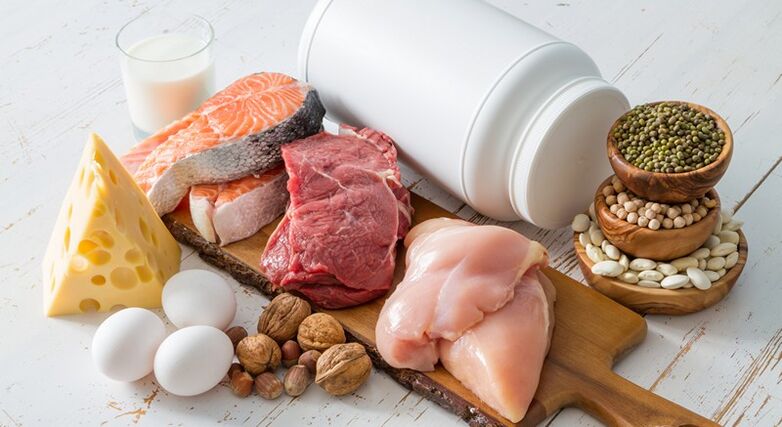
- white meat chicken, rabbit or turkey;
- lamb, veal or beef;
- low-fat dairy products;
- Eggs, preferably quail;
- Tofu cheese;
- nut;
- Soy milk.
Fat
Plant fats can help you lose weight, but only if used correctly.
- Olive oil (preferably cold pressed);
- fish fat;
- herring, mackerel, salmon or trout;
- Butterfat is found in fermented baked milk, butter, or sour cream;
- Nuts and seeds.
carbohydrate
The beauty of complex carbohydrates is their structure. Use them correctly and you'll have energy for long periods of time and hunger won't bother you.
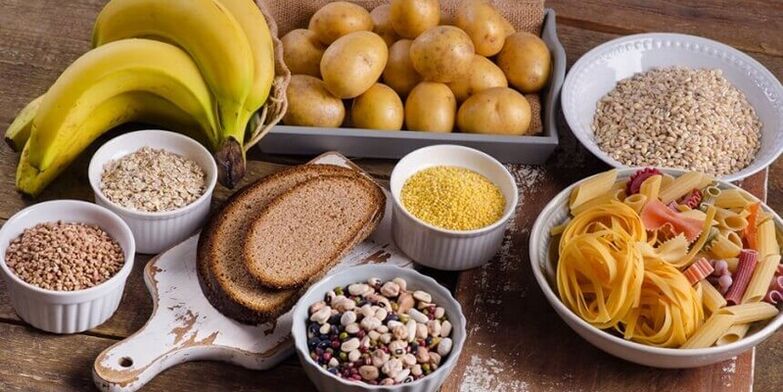
- Pasta or vermicelli made from durum wheat;
- All legumes;
- All grains are available except semolina;
- baked beans;
- Products containing starchy and sweet vegetables (canned peas or corn do not do you any good).
cellulose
- cocoa;
- flax seeds;
- apricots, figs;
- bran;
- Rose hips, almonds;
- Rye bran and whole wheat bread.
vitamins
Vitamin deficiencies can lead to worsening health, metabolic disorders, and reduced immunity, which will only harm your desire to lose weight.
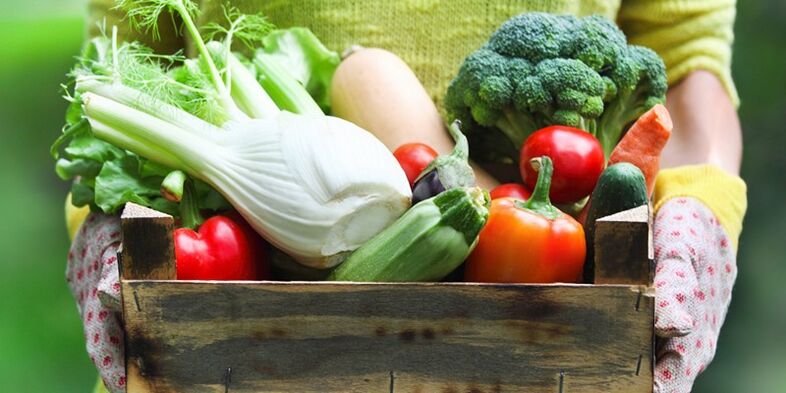
- Greens, fruits, vegetables;
- nuts and seeds;
- cereals and grains;
- Dairy products with moderate fat content;
- eggs (quail or chicken);
- Fish and lean meat.
Banned products
- Potato chips, everyone’s favorite salted nuts, seasoned crackers, snacks;
- Popcorn;
- Convenient, ready-to-eat meals;
- Store baked goods with long shelf life;
- Mayonnaise (especially high fat content);
- Ready-made food from the store (such as fried fish or pies).
diet
- Daily protein intake should be equivalent to the volume of a palm (about 130 grams);
- The intake of complex carbohydrates should not exceed 80-100 grams;
- Fat content should not exceed 400 calories;
- Vegetables and fruits, which contain the most fiber and vitamins, should be eaten in a volume equal to two palms at a time.
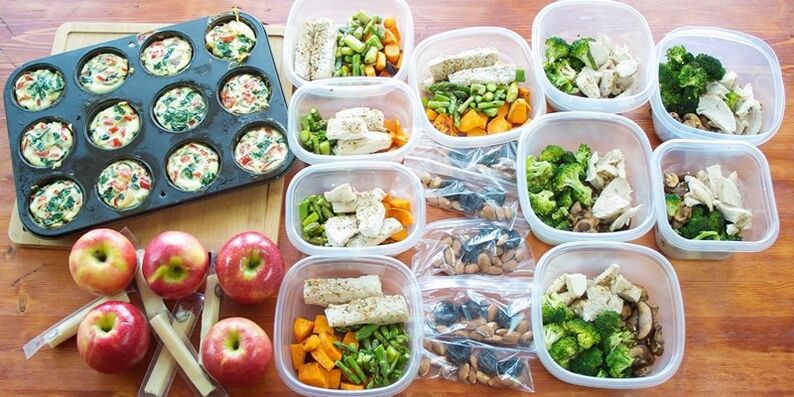
When creating a menu for your daily routine, we recommend considering all the factors your body needs to function healthily. The plan is chosen by a nutritionist or independently. Be sure to calculate your own physical condition and weight.
Menu example
- Oatmeal with dried apricots and raisins, milk, 2 soft-boiled eggs;
- Mashed fish, mashed potatoes, milk;
- Muesli, eggs (could be quail), freshly squeezed juice.
- medium-fat yogurt, orange and 2 bananas;
- pancakes with cheese and milk;
- Low-fat cottage cheese with sour cream and apples.
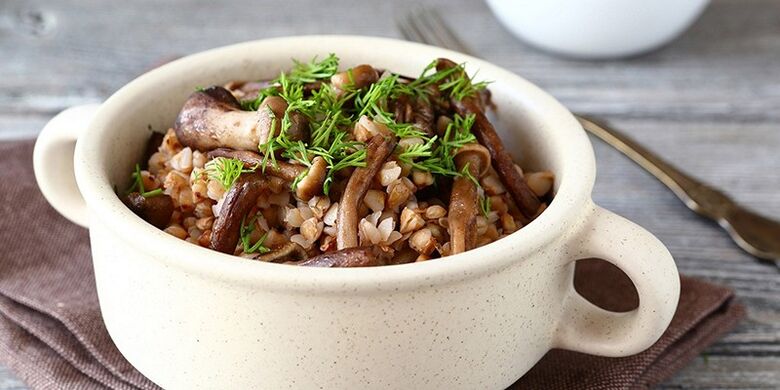
- Chicken soup, mushroom buckwheat porridge, salad (pumpkin and tomato), a glass of juice;
- Fish soup, fresh chopped vegetables, steak, a glass of fresh juice;
- Low-fat borscht, tomatoes and cheese, buckwheat porridge and cocoa.
- Whole wheat bread sandwich with cheese and a glass of milk;
- tomato salad dressed with low-fat sour cream and juice;
- Yogurt and any seasonal fruit.
- Chicken steak, vegetables (if in season) green tea;
- Fish steak, Greek salad and milk;
- Boil vegetables (you can make salads with them), boil chicken and green tea.
suggestion
- We eat at least three meals a day (preferably five);
- We use different products;
- We completely exclude alcohol from our diet;
- We say no to preservatives;
- We use mineral water instead of sweet carbonated drinks;
- We prepare only fresh dishes every time;
- We exclude marshmallows, chocolate and ice cream;
- We eat slowly, but not too much;
- If you must eat at work, don't go to the store; it's better to bring fruit, yogurt or boiled chicken from home.
































































